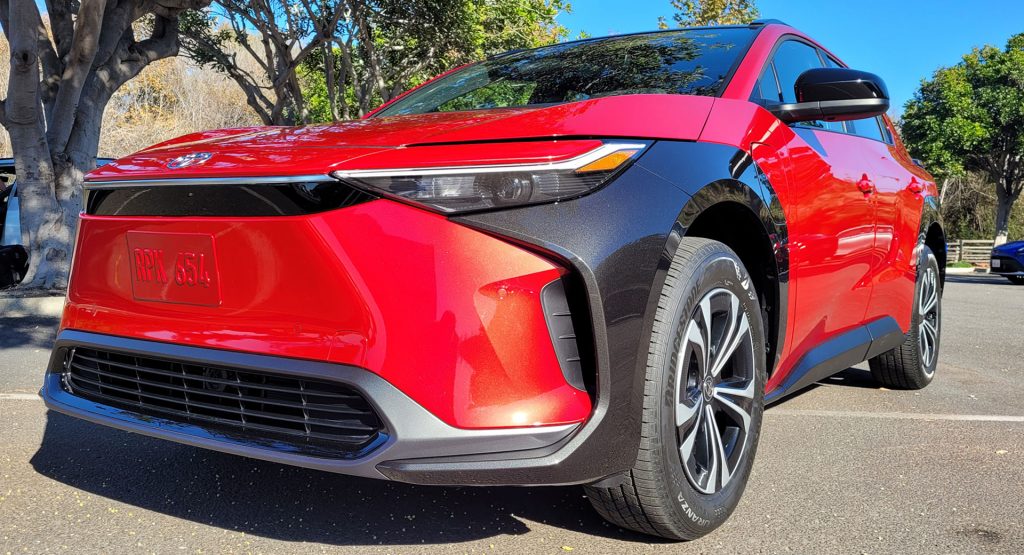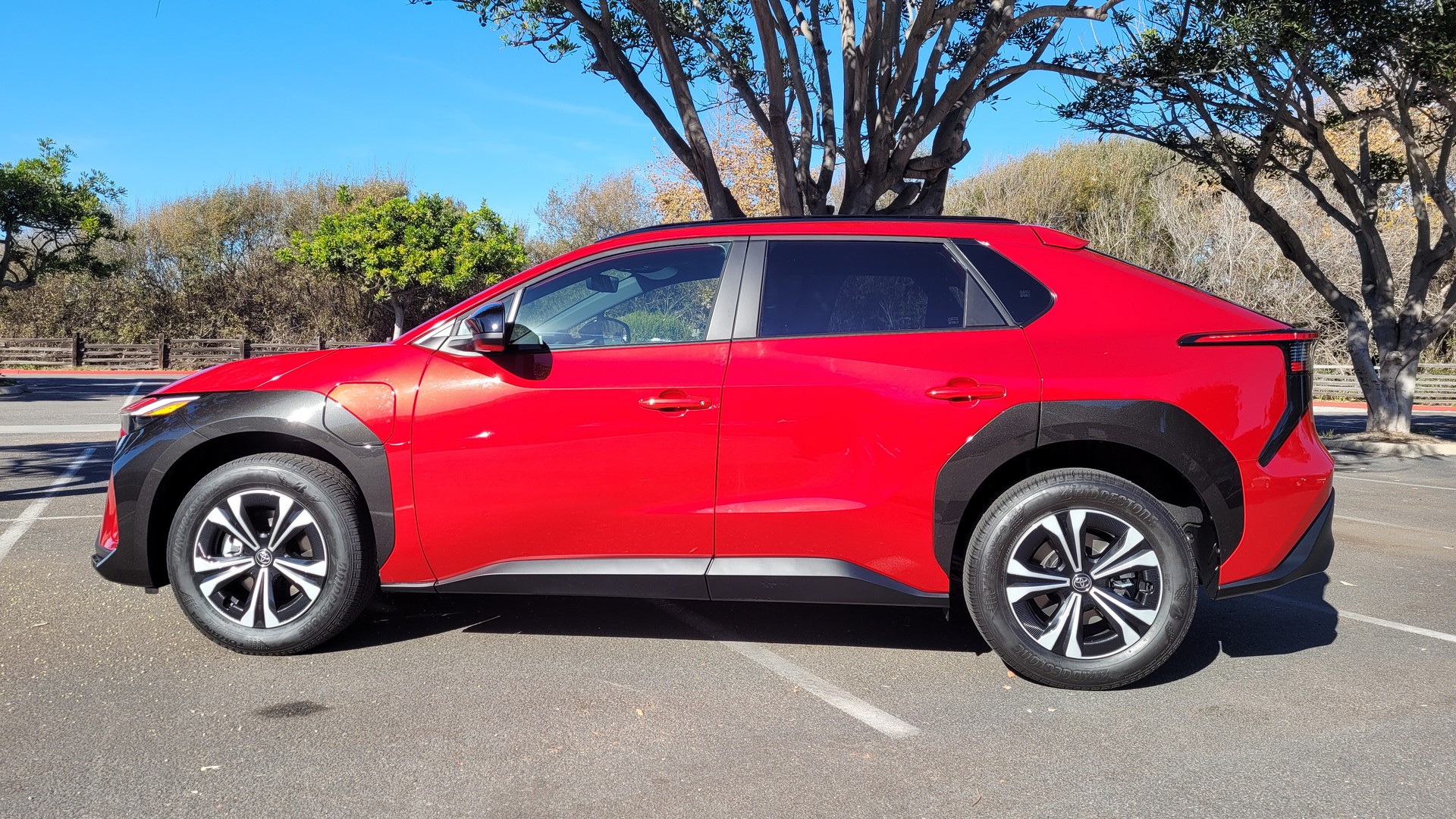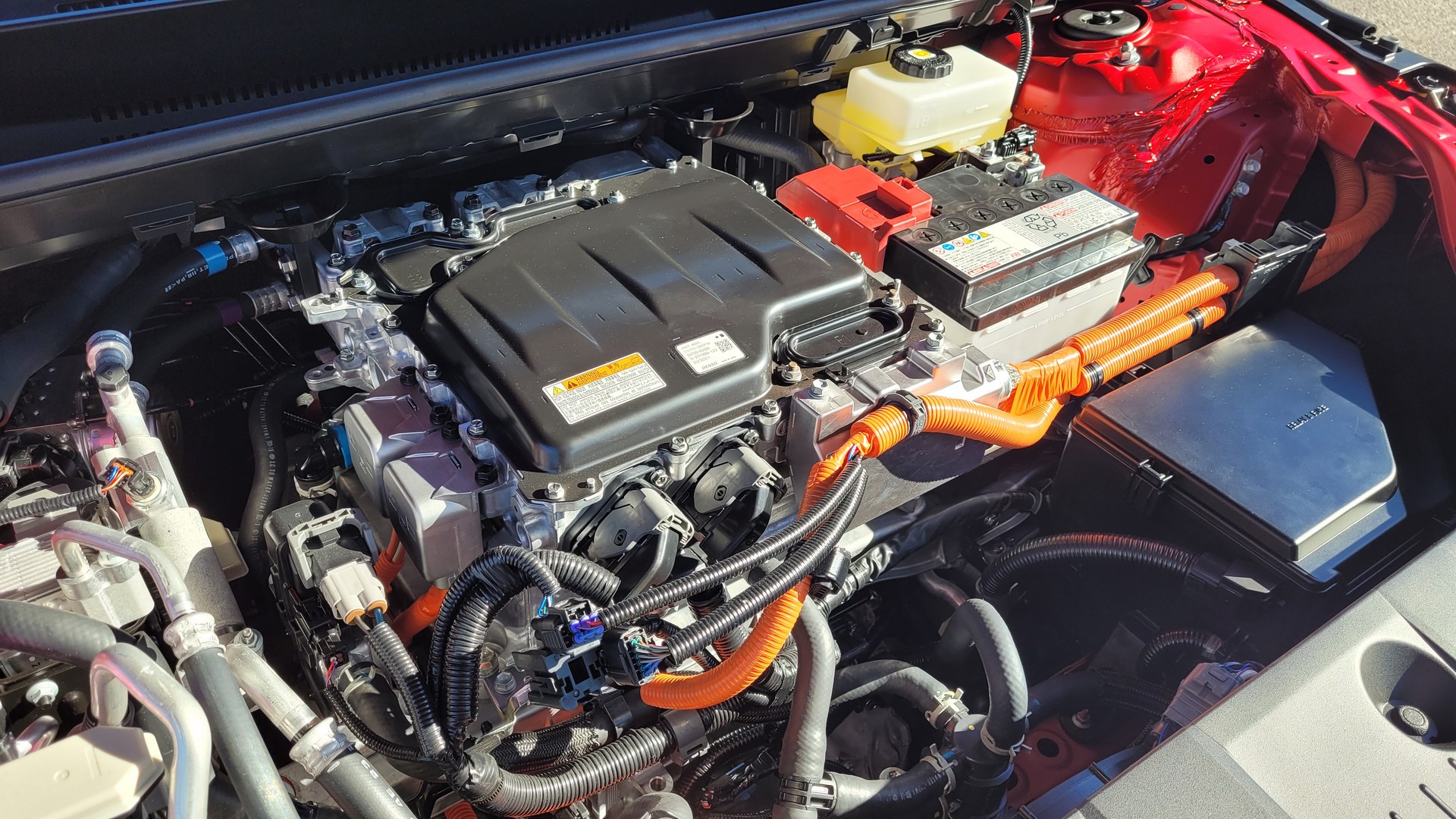Toyota is the world’s largest manufacturer of electrified vehicles, but their eco-friendly image has taken a hit for their seeming resistance to electric vehicles.
While the company has made some questionable moves in the past, the bZ4X is coming to silence the critics. It’s been in the works for years as Toyota originally laid out their commitment to EVs in 2017 and recently told us now is the right time to launch them.
Speaking at an E-Volution event in California earlier this month, Toyota officials said they’re “pro BEV” and noted the bZ4X is just the beginning of a major electric vehicle push that will see the automaker introduce 15 dedicated BEVs by 2025, including seven wearing the bZ (Beyond Zero) moniker.
First Look: 2023 Toyota bZ4X Arrives In America With Up To 250 Miles Of Range
The bZ4X is slightly larger than the RAV4 and will be offered in front- and all-wheel drive configurations. The former will have a range of up to 250 miles (402 miles), while the latter should be able to travel around 220 miles (354 km), judging by the similar Subaru Solterra.
Those numbers are middle of the pack, but officials said the model has the “right range for the market.” Some people might beg to differ, but various pre-pandemic studies have shown the average American only travels 40 miles (64 km) or less per day.
While Toyota has high hopes for the bZ4X, they’re keeping their expectations in check as they don’t expect mass market adoption of electric vehicles to occur until they’re equipped with solid state batteries. They promise to be a game changer and this is when we’ll see an “EV in every driveway.”
Since solid state batteries are a ways off, Toyota is already working on the next-generation of lithium-ion technology. These promise to be cheaper than current batteries, while also having a higher energy density and a longer service life.
Despite the new focus on electric vehicles, Toyota doesn’t believe there is a single solution to the climate crisis. As a result, they’ll continue to offer hybrids, plug-in hybrids and fuel cell vehicles. Each has its advantages and disadvantages, and officials noted companies need to be agile as no one knows what the future will look like. This is clearly evident as few people could have imagined the rapid shift to electric vehicles a decade ago.







